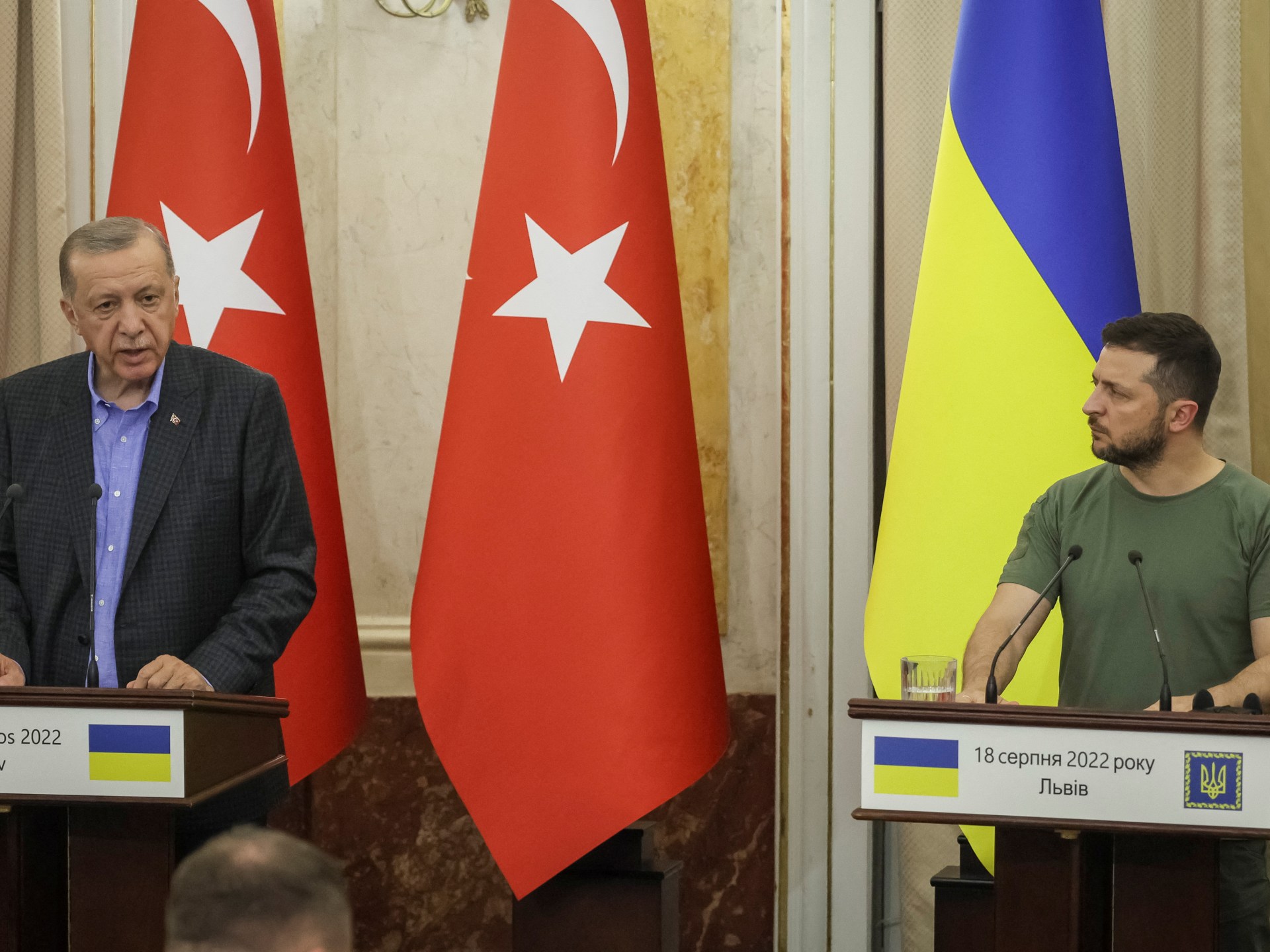Turkish President Recep Tayyip Erdogan affirmed that his country is making efforts to arrange a meeting between Russian President Vladimir Putin and his Ukrainian counterpart Volodymyr Zelensky and end the war "to avoid further losses and destruction," noting that his country's policy in this context is "balanced towards all parties."
US Secretary of State Anthony Blinken also announced his country's provision of new security aid to Ukraine worth $457.5 million, while the British government confirmed imposing sanctions on 92 Russian entities and individuals against the backdrop of the "illegal" referendums in Ukraine.
These referendums on joining Russia began last Friday in the Donetsk, Lugansk, Kherson and Zaporozhye regions, and will continue for 5 days until tomorrow, Tuesday, and Moscow expects its result to be in favor of the secession of the four regions from Ukraine.
intermittent connections
On the other hand, the Kremlin said today, Monday, that "intermittent" contacts were held between Russia and the United States on issues related to nuclear weapons, after President Putin said a few days ago that he was "not deceiving" when he spoke of his willingness to use this type of weapon if Russia felt that Its territorial integrity is threatened.
An EU diplomat noted that the ambassadors of the bloc's member states had been invited to a Crisis Response Group meeting today, to discuss concerns about the escalation of the Ukraine war.
NATO also announced the launch of exercises for allied and partner air forces in the Baltic Sea region focusing on defense and deterrence.
The Financial Times quoted two US officials as saying that Western capitals had raised the level of vigilance and nuclear deterrence, and had put in place contingency plans in case Putin went ahead with his nuclear threats.
US officials discussed with their Ukrainian counterparts several scenarios regarding the possible use of nuclear weapons, the two US officials said.
The newspaper also quoted a senior US official as confirming that his country sent messages to Moscow, which he described as more accurate than NATO's message regarding the US response in the event of Russia's use of nuclear weapons.
And the US Secretary of State, Anthony Blinken, confirmed - in an interview with CBS News, which aired on Sunday evening - reports that his country sent secret warnings to Russia to discourage it from the option of nuclear war, considering that the consequences of any possible Russian use of weapons Nuclear would be horrific.
Blinken added that the only way for the Russian president to get out of this war he started is to "end it himself," stressing that the United States is doing its best not to expand this war.
On the other hand, the head of the International Affairs Committee of the Russian "Doma" Leonid Slutsky called on Washington officials to learn about Russia's nuclear doctrine before issuing warnings to his country.
And Slutsky said - according to what was quoted by the Russian RIA Novosti agency - that it is not the first time that the United States has talked about the possibility of Moscow using nuclear weapons in Ukraine, "American specialists should study the Russian nuclear doctrine better before issuing warnings through the media."
According to military experts, the Russian nuclear combat doctrine means resorting to escalation in order to de-escalate the opponent.
Putin said earlier that Moscow will view the Ukrainian attacks on these regions as attacks on Russian soil, and will use all means to protect them.
suicide drones
On the ground, Reuters quoted the Southern Command of the Ukrainian army as saying that two Russian drones bombed this morning, Monday, military sites in Odessa.
The spokesman for the Ukrainian Military Regional Command said that the city was subjected to a new attack by Iranian-made “suicide” drones of the “Shahid 136” model of the Russian Air Force, and that the Ukrainian forces succeeded in shooting down an Iranian-made drone.
On Sunday, the Ukrainian president said that violent operations are taking place against Russian forces in many places along the front line, and some of them have achieved what he described as "positive results" for Kiev.
On the other hand, Al-Jazeera correspondent reported the continuation of Russian bombing of the cities of Slavyansk and Kramatorsk in the Donbass region.
The cities of Bakhmut and Soledar also witnessed a renewal of military operations in their surroundings, and field sources reported that the Ukrainian army made new progress on the Lyman front and took control of two additional towns.
In the Kharkiv region, the Ukrainian air defenses shot down a Russian Air Force fighter "Sukhoi-30" with a surface-to-air missile.
The images show that the Russian plane was flying at a very low altitude, which facilitated its shooting down with a short-range shoulder-fired "Stinger" missile that the United States had supplied to Ukraine in large numbers.
For its part, the Zaporozhye authorities said that the Ukrainian forces bombed a granary in the city of Tokmak.
In the south, Kyiv announced a Russian attack on Odessa with Iranian drones, one of which was shot down.
The Russian Defense Ministry also announced that it had thwarted an attempt by the Ukrainian forces to target the Zaporozhye Atomic Energy Plant with 8 booby-trapped drones.
Ministry spokesman Igor Konashenkov said that all Ukrainian drones were shot down outside the station's grounds, accusing Kyiv of continuing the attack on the station's perimeter.

